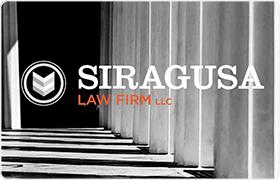East Orange Divorce & Family Law Lawyer, New Jersey
Sponsored Law Firm
-
 x
x

Click For More Info:
-
Siragusa Law Firm LLC
678 Route 202/206 Building 5, Suite 5 Bridgewater, NJ 08807» view mapDivorce & Family Law Creative Thinking. Exceptional Results.
At Siragusa Law Firm, we take our responsibility seriously. We are passionate about helping you, making sure to guide you through whatever legal matter you face.
908-218-1100
Christopher Raymond Fritz
✓ VERIFIEDDivorce & Family Law, Criminal, Lawsuit & Dispute, Family Law
Introducing Christopher Fritz: A Resolute Advocate for Divorce and Family Law in New Jersey. In the realm of divorce and family law, one name stand... (more)
Marsha Marie Moore
Wills & Probate, Family Law, Corporate, Business Organization
Status: In Good Standing
Joseph A. Vena
Business Organization, Estate Planning, Family Law, Land Use & Zoning
Status: In Good Standing
Richard L. Slavitt
Alimony & Spousal Support, Child Support, Corporate, Business Organization
Status: In Good Standing
Sam D. Han
Estate Planning, Family Law, Intellectual Property, Landlord-Tenant
Status: In Good Standing
 Lynette Siragusa Bridgewater, NJ
Lynette Siragusa Bridgewater, NJ Practice AreasExpertise
Practice AreasExpertise

